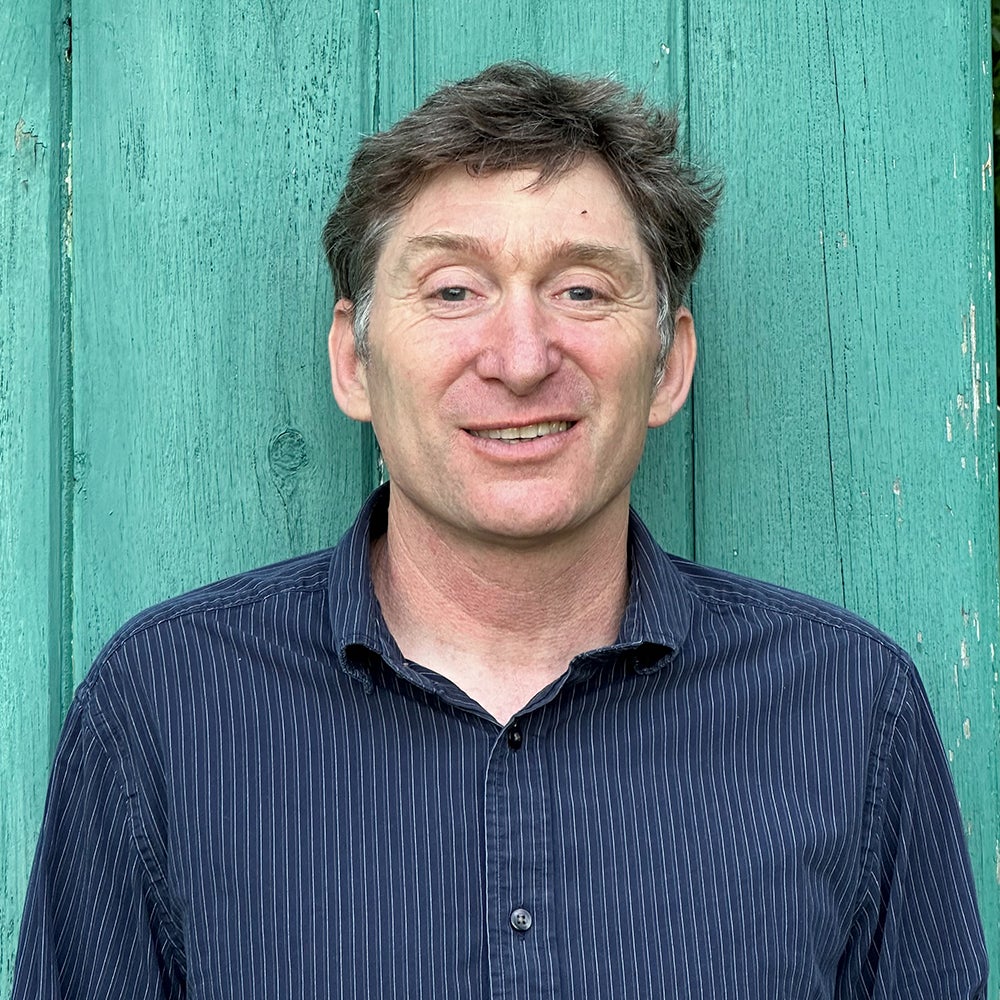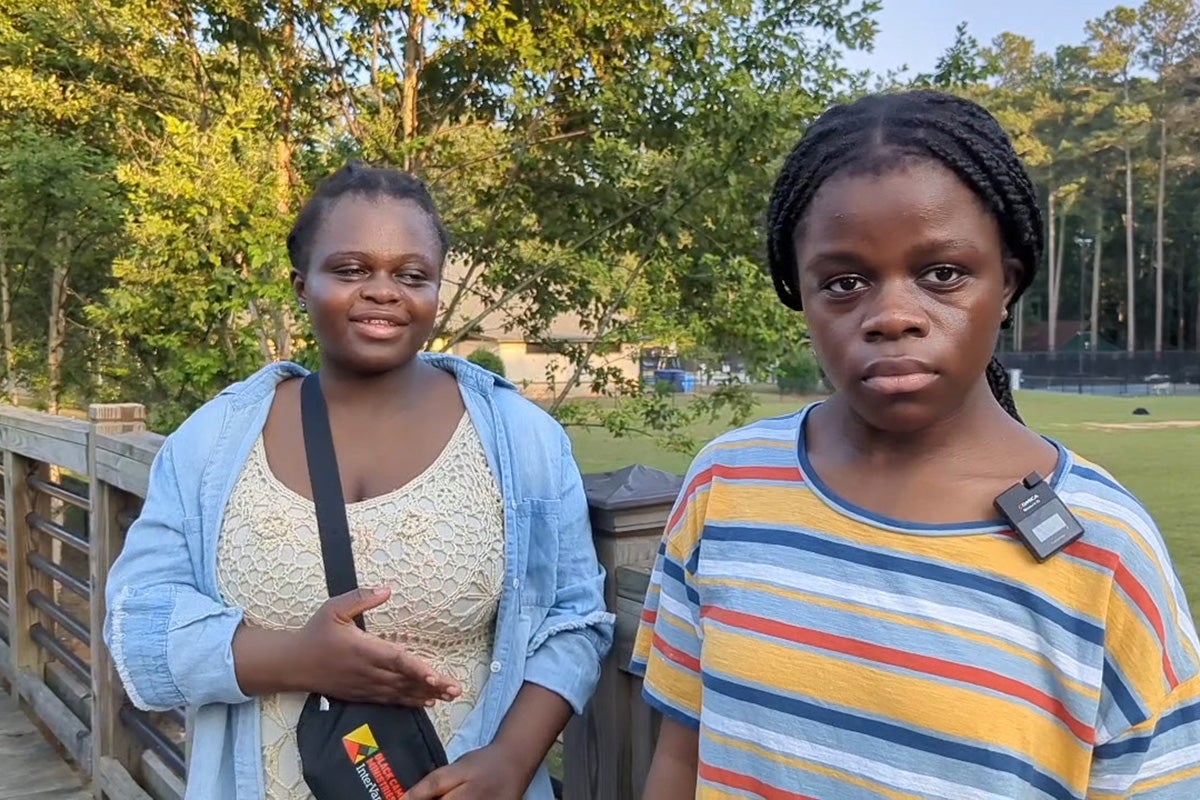
People
Misinformation is making America sicker
Why do people believe that using antiperspirant causes breast cancer? And how can healthcare leaders gain citizens’ trust to correct misinformation? The deep desire to explore such questions led Maike Winters to leave her career as a radio journalist in the Netherlands and seek a doctorate in risk communication and infectious disease outbreaks at Sweden’s Karolinska Institutet, where she is currently based while finishing work related to a post-doctoral fellowship at the Yale Institute for Global Health. Her research includes papers measuring Swedes’ trust in media, and American attitudes toward mpox.
Sign up for Harvard Public Health
Delivered to your inbox weekly.
The former president of Brazil, Jair Bolsonaro, once suggested that the Pfizer-BioNTech coronavirus vaccine could turn people into crocodiles. Do we live in a golden age of misinformation?
Winters: Misinformation has always been a problem. When English physician Edward Jenner introduced the first vaccination for smallpox in 1796, doctors claimed it would make people grow horns and hooves. On social media, misinformation circulates much faster. People with fringe ideas are much more connected now. And to COVID-19, there have been strong reactions–including conspiracy theories.
And anti-mask campaigns and hatred for Anthony Fauci…
Winters: People [in the U.S.] feel political leaders are not acting for the public good. This is partly because the American health care system is so complicated. When we were living in New Haven [Winters spent eight months at Yale Medical School], my husband and I constantly worried, “If we get into an accident, are we going to be bankrupt for the rest of our lives?” When we took our two-year-old son to a pediatrician for a fever, all three of us had to get COVID tests. We got a bill of $750 per person.
I was very happy to come back to Sweden. Here, people have extremely high trust in their political leaders. They think their leaders are there to do something good for society. Why is this? Because you see a return on your trust here. You pay taxes, and you get something back for it. We get 18 months parental leave. When my child is sick, I can stay home and the state pays my salary those days. If I have to go to the emergency room, I pay $40 and that covers everything.
But Sweden had no restrictions during the pandemic and people died, right?
Winters: That’s how it’s been reported, but the stories didn’t do justice to what happened here. No one in Sweden ever declared a lockdown, it’s true, but we did have a lot of guidelines on, for example, how many people you could meet in restaurants. And because there is trust here, people follow guidelines.
In the beginning of the pandemic, Sweden had much higher mortality compared to other Scandinavian countries. But it was on par with the rest of Europe.
There are also things that went wrong in Sweden. In assisted living facilities, there were not enough regulations and a lot of people died amid terrible circumstances. In the beginning of the pandemic, the guidelines were not translated into Somali or Arabic, so a lot of the deaths were among migrant populations.
What can be done about the United States to build trust in our medical system?
Social inequalities in the U.S. are so large and systemic, and this makes it hard to change things. But universal health care would be a great start. Give people access to preventive care. And make sure that people are not punished by having to spend their lives making payments on a medical bill.
Empathy is also extremely important. You can’t just say people are stupid anti-vaxxers. In the Netherlands, when the COVID-19 vaccine was rolled out, Erasmus University installed a hotline called the Doubt Line. It was staffed by medical students, and they mostly just listened as people asked, “In my situation, is it safe for me to take this vaccine?” Some people are just not going to get vaccinated, and we have to accept that and say, “Okay, how can we move forward together?”
We also need to ask how we should work with communities without being top-down about policy. In the U.S., President Biden did this well in 2021 by launching ‘Shots at the Shop’, a program that trained Black barbershop owners to provide information and debunk misinformation about COVID-19 vaccines. As another example, in Sierra Leone traditional burials involve washing the body. But during the Ebola outbreak bodies directly after death are extremely contagious. So in the beginning of the outbreak, funerals were super spreader events. But WHO officials and others worked with religious leaders to develop protocols for funerals to keep the body wrapped in a body bag, no touching or washing allowed. Religious leaders pointed toward passages in the Quran and the Bible saying that in the case of an infectious disease outbreak, the body will go to the next safe place, even if it’s not washed.
But in the U.S., distrust surged during the pandemic in part because medical authorities kept changing their instructions. There was no need for masks. Then suddenly there was, for example.
Winters: Leaders need to be much more honest in saying that there is a level of uncertainty in science–that it’s never a hundred percent clear. The science keeps evolving. We keep learning more about this virus. Admitting uncertainty in science is part of being transparent, and it’s been shown to increase trust.
But won’t the average American respond to assertions of uncertainty by saying, “We pay these guys hundreds of thousands a year and they still don’t know?”
Winters: Well, yeah, I’ve seen that in the U.S. you like clear statements and very little uncertainty. But I think that can change. We can invest in the next generation of voters. We need to help them to see that the world is very complex.
Image: Kastanka / iStock



